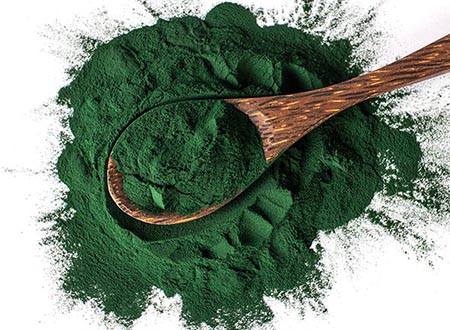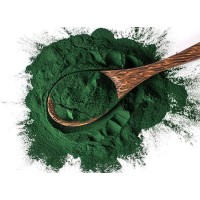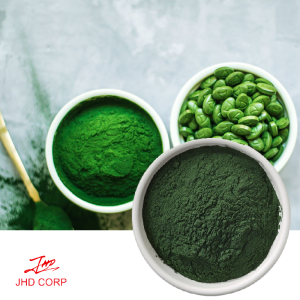What is the difference between spirulina powder and seaweed powder?
Spirulina powder is ideal for those seeking a high-protein supplement with antioxidant properties, while seaweed powder is better suited for individuals looking to boost their iodine intake or enhance gut health.
Spirulina powder and seaweed powder are both nutrient-rich supplements derived from aquatic sources, but they differ significantly in origin, composition, and benefits.
Origin:
Organic spirulina powder is made from cyanobacteria, specifically *Arthrospira platensis* or *Arthrospira maxima*. These are microscopic, blue-green algae that thrive in freshwater environments such as lakes and ponds. Seaweed powder, on the other hand, is derived from various types of macroalgae, including kelp, nori, wakame, and others, which grow in saltwater oceans and seas.
Nutritional Composition:
Spirulina is renowned for its high protein content, often exceeding 60% by weight. It is also rich in essential amino acids, B vitamins (especially B12), iron, and antioxidants like phycocyanin. Additionally, spirulina contains small amounts of omega-3 fatty acids and trace minerals.
Seaweed powder, depending on the type of seaweed used, is particularly high in iodine, which supports thyroid health. It also provides fiber, vitamins A, C, E, and K, and minerals such as calcium, magnesium, and potassium. Seaweed tends to have a lower protein content compared to spirulina, but offers unique compounds like alginates and fucoidans with potential health benefits.

Health Benefits:
Spirulina is often praised for its immune-boosting properties, ability to support energy levels, and potential to reduce inflammation due to its antioxidant content. It is frequently used as a supplement for vegetarians and vegans because of its protein and iron content.
Seaweed powder is noted for its role in supporting thyroid function due to its iodine content. It also promotes gut health through its fiber and prebiotic compounds. Certain types of seaweed contain bioactive compounds that may support cardiovascular health and reduce inflammation.
Taste and Usage:
Organic spirulina extract powder has a distinct, earthy, slightly grassy flavor that can be overpowering for some people. It is commonly added to smoothies or consumed in capsule form. Seaweed powder has a more marine-like taste reminiscent of the ocean. It is often used as a seasoning in soups, salads, or rice dishes.
In summary, while both spirulina powder and seaweed powder are excellent sources of nutrients, they cater to different health needs. Spirulina is ideal for those seeking a high-protein supplement with antioxidant properties, while seaweed powder is better suited for individuals looking to boost their iodine intake or enhance gut health. Understanding these differences can help you choose the right supplement for your specific goals.















